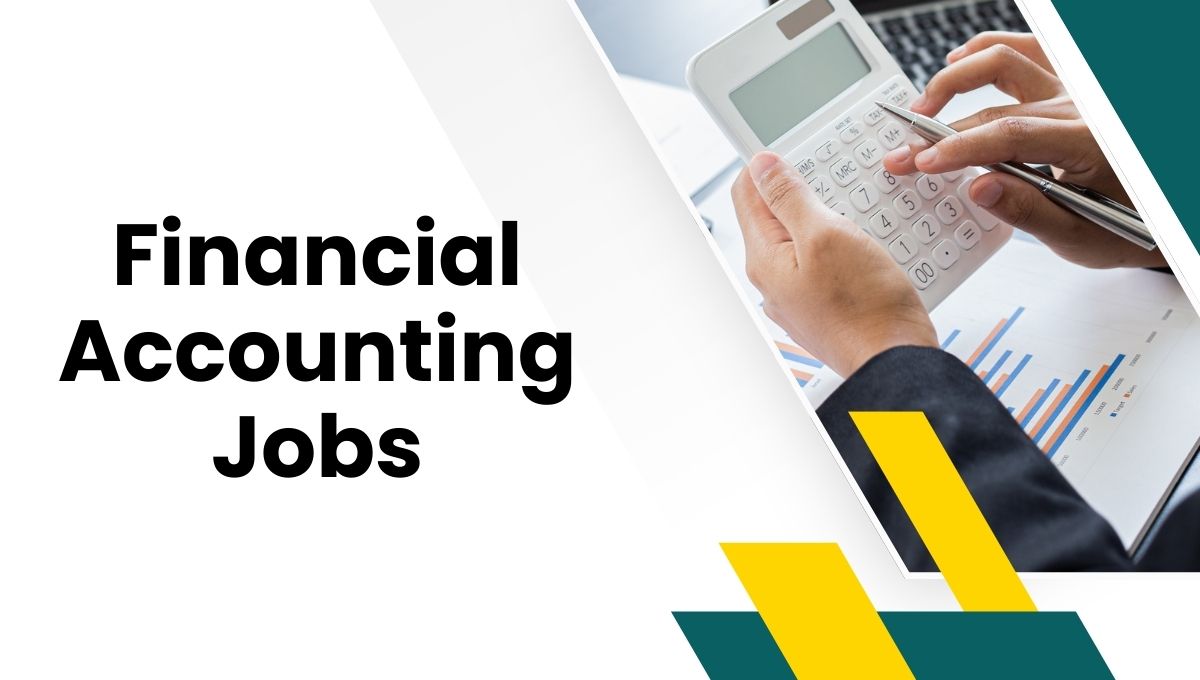Looking to start your career in financial accounting? This guide provides a step-by-step approach, from building a strong educational foundation to gaining practical experience and acing interviews. With growing demand in the finance industry, mastering key skills like accounting software, taxation, and financial reporting can give you a competitive edge. Explore top certifications, job opportunities, and expert tips to secure your first role in this thriving field.
Are you a BCom graduate? Are you looking to secure your first financial accounting job? Getting the first job as a BCom graduate is a milestone in itself. But guess what…You are not alone! Accounting and finance industry is ever-growing. That means the demand for skilled professionals is also increasing. Today, organisations are constantly looking out for professionals having in-depth knowledge in analytics, finance and accounting principles. You will get step-by-step procedure for securing your first role with actionable insights and resources in this blog.
Why Pursue a Career in Financial Accounting?
As Warren Buffett once said, “Accounting is the language of business.”
A career in financial accounting mostly open doors filled with great opportunities- i.e. from auditing and taxation to financial analysis and management. This sector is always in demand, offering good growth in career and good pay.
According to Glassdoor, the average salary for financial accounting jobs in India is ₹5 lakhs per annum, with experienced professionals earning up to ₹11 lakhs or more- this is for more than 10 years of working experience.
(Source: Glassdoor)
*Note: The numbers keep fluctuating it is best to check websites like Glassdoor, PayScale, Ambition Box personally.
Moreover, the demand for jobs for BCom graduates in this field is rising day by day. The finance and accounting sector is expected to grow by 6% annually, which means there will be more and new roles for aspiring professionals in the same sector, as per the report by Ambition Box.
Step-by-Step Guide to Landing Your First Financial Accounting Job
Step 1: Build a Strong Educational Foundation
If you want to stay ahead among your peers and stand out in the competitive job market just having a mere BCom degree is not enough. A degree can be a great starting point but not the ultimate goal. To have a strong knowledge about the finance and accounting industry consider pursuing a Financial Accounting course. Programs like the Postgraduate Program in Financial Accounting and Management offered by Imarticus Learning can help and provide you with advanced skills and industry-relevant knowledge.
As a financial accountant, your responsibilities will include:
- Preparing financial statements
- Budgeting and forecasting
- Ensuring compliance with financial regulations
- Analyzing and interpreting financial data
- Collaborating with auditors
Key Skills to Develop:
- Proficiency in accounting software like Tally, QuickBooks, and SAP
- Strong understanding of financial statements and reporting
- Knowledge of taxation and auditing standards
Step 2: Build a Strong Academic Foundation
Your BCom degree is your first stepping stone for success. Focus on key subjects such as:
- Financial accounting principles
- Corporate finance
- Cost accounting
- Taxation laws
Additionally, opt for certifications, such as ACCA or CPA, to enhance your qualifications and stand out in a competitive job market and especially if you want to take your career abroad. Check out Imarticus Learning Certification Programs– It is India first and only Authorised Prep Provider for World’s Top 4 Certifications in Accounting & Finance like US CPA, ACCA, CMA, etc.
As Benjamin Franklin wisely said, “An investment in knowledge pays the best interest.”
Step 3: Gain Practical Experience
Look for internships or part-time opportunities in accounting and finance jobs to gain real-world experience such as:
- Junior Accountant
- Accounts Assistant
- Tax Intern
According to PayScale, 70% of employers prefer candidates with at least 1-2 years of practical experience.
| Key Skills to Master | Importance in Financial Accounting Jobs |
| Analytical skills | Accurate financial data interpretation |
| Attention to detail | Ensuring error-free financial reporting |
| Technical proficiency | Expertise in accounting software tools |
Step 4: Develop Soft Skills and Craft a Winning Resume
Apart from technical expertise, soft skills play a vital role in securing jobs for BCom graduates. Focus on improving your:
- Communication skills: Essential for presenting financial reports to stakeholders
- Problem-solving abilities: Helps in resolving financial discrepancies creating a solution-oriented approach.
- Time management: Ensures timely submission of financial statements
Make sure that your resume highlights your education, skills and expertise along with your internship or part-time experience and what did you learn from the same. Additionally, make sure that the resume you craft should be as per the job role you are applying for.
If you are preparing for an interview here are some of the questions that can help you crack the interview and get your desired job.
Step 5: Research and Target the Right Companies
Find out the right companies who are actively hiring for entry-level positions in accounting and finance. Networking also plays a key role here. Join LinkedIn and connect with Industry leaders and hiring managers and apply ask for the vacancy in their organisations. Also, you can use job portals such as Naukri, Indeed, Shine.com, etc. for the regular job opportunities.
According to AmbitionBox, the average salary for entry-level jobs for BCom graduates in India is approximately ₹3,00,000 per annum, with notable growth in sectors like technology and healthcare.
Discover some of the best career opportunities in finance after graduation.
Step 6: Ace the Interview
It is always important to prepare yourself thoroughly before going for an interview. Find out the common interview questions such as:
- How do you handle financial discrepancies?
- What accounting software are you familiar with?
- How do you stay updated with changing financial regulations?
Additional Tips for Securing Your Dream Job
Enrol in a Specialised Financial Accounting Course
Programs like the Postgraduate Program in Financial Accounting and Management provide training and certification in industry-relevant topics. Their key features include:
- Real-world case studies
- Placement support
- Comprehensive curriculum covering accounting principles, taxation, and compliance
Leverage Your Network
Networking can open doors to unadvertised Financial Accounting Jobs. Attend seminars, join professional forums, and connect with alumni or mentors for guidance and referrals.
Key Stats on Financial Accounting Careers
Demand for Financial Accountants
- The demand for accountants is projected to grow by 6% from 2021 to 2031 globally, according to the U.S. Bureau of Labor Statistics.
- In India, entry-level financial accountants earn an average of ₹3,00,000 per annum (source: AmbitionBox).
| Country | Average Entry-Level Salary (Annual) |
| India | ₹3,00,000 – ₹4,50,000 |
| USA | $55,000 – $65,000 |
| UK | £20,000 – £30,000 |
Emerging Trends
The financial accounting field is being revolutionized by digital transformation. Expertise in advanced accounting software and data analytics tools is now a necessity for thriving in Careers in Financial Accounting.Check out how you can land a high-paying job in Financial Accounting and Management, here.
Common Challenges for BCom Graduates and How to Overcome Them
| Challenge | Solution |
Lack of Practical Experience |
Undertake internships or enrol in courses with live projects. |
Limited Knowledge of Advanced Tools |
Learn accounting software and tools through platforms like Coursera or LinkedIn Learning. |
Difficulty in Job Interviews |
Practice with mock interviews and seek feedback from mentors. |
FAQs
Q1: What are the most common roles in Financial Accounting Jobs for freshers?
A: Common roles include Junior Accountant, Accounts Assistant, and Financial Analyst. These roles are ideal starting points for jobs for BCom graduates.
Q2: Do I need additional certifications for Careers in Financial Accounting?
A: While not mandatory, certifications like CA, CMA, or a Financial Accounting course greatly improve your prospects in Careers in Financial Accounting.
Q3: Are Financial Accounting Jobs available in non-finance industries?
A: Yes, Accounting and Finance Jobs are essential across industries like IT, healthcare, retail, and manufacturing.
Q4: Can BCom graduates secure high-paying Accounting and Finance Jobs?
A: Absolutely! With the right skills and certifications, jobs for BCom graduates can lead to lucrative roles in finance and accounting.
Q5: Is a Financial Accounting course necessary for entry-level positions?
A: While not mandatory, a Financial Accounting course enhances your knowledge and gives you a competitive edge in Financial Accounting Jobs.
Q6: What industries offer the most Careers in Financial Accounting?
A: Industries such as banking, financial services, consulting, and IT offer a wide range of Accounting and Finance Jobs.
Q7: How can I improve my chances of landing Financial Accounting Jobs?
A: Focus on building technical skills, gaining certifications, and networking. Internships can also play a key role in starting Careers in Financial Accounting.
Q8: What is the salary growth potential in Careers in Financial Accounting?
A: Entry-level salaries in Financial Accounting Jobs average ₹3,00,000 per year, and with experience, they can exceed ₹10,00,000 annually. (Source: Payscale)
Conclusion:
Starting a career in Financial Accounting Jobs can be challenging but equally rewarding. With the right education, practical exposure, and determination, you can achieve a successful career in the accounting domain. Remember, as Warren Buffett says, “The best investment you can make is in yourself.”
If you are looking to make a career in financial management and accounting, check out our 100% job-assured program here.


